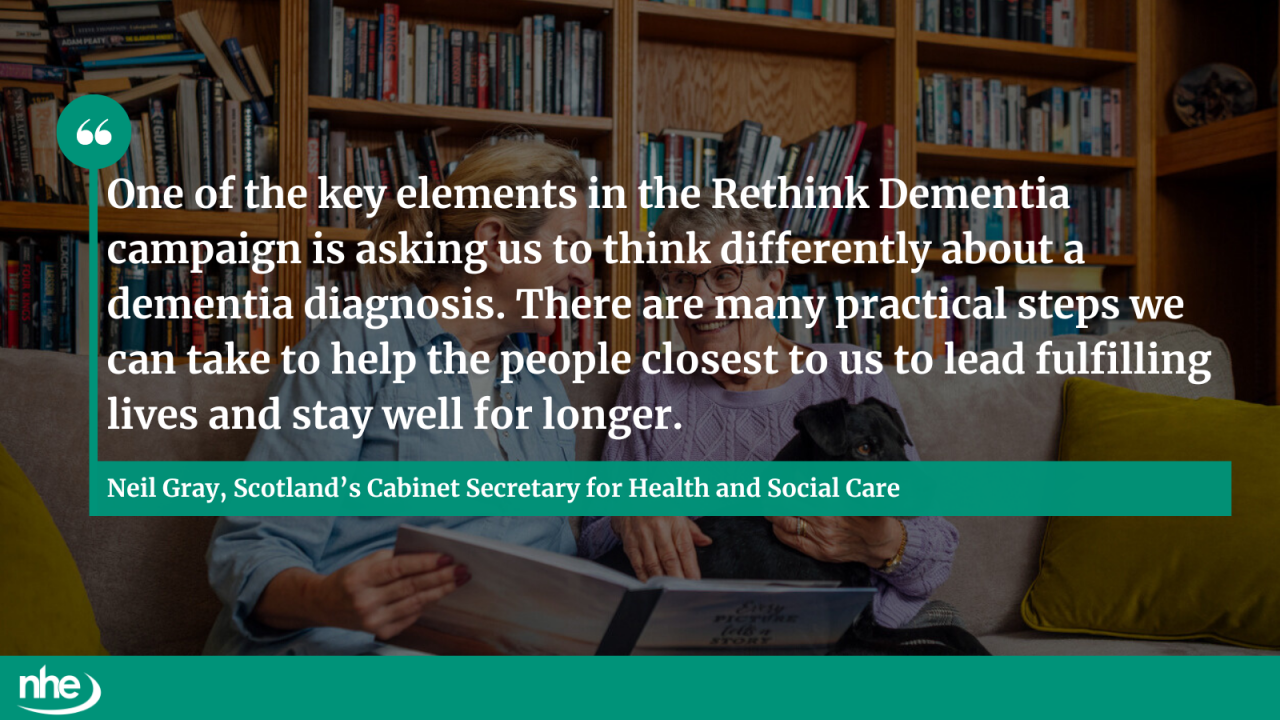The Scottish Government is challenging people to think differently about neurodegenerative diseases with a new Rethink Dementia campaign in partnership with the Convention of Scottish Local Authorities (COSLA).
The campaign is being launched to combat the stigma around the illness, with people encouraged to continue participating in everyday activities with friends and loved ones who experience a dementia diagnosis.
Research shows this helps them stay well for longer and alleviates symptoms like:
- Depression
- Anxiety
- Apathy
Impact
It is thought that dementia affects around 90,000 people in Scotland alone, with 3,000 being under the age of 65.
For the UK as a whole, the cost of dementia in 2024 is forecast to be £42bn by the Alzheimer’s Society – this will increase to £90bn by 2040.
The total number of people living with dementia in the UK is estimated to be 982,000, which is also expected to rise by 2040 – to 1.4 million.
Think differently
“One of the key elements in the Rethink Dementia campaign is asking us to think differently about a dementia diagnosis,” said Scotland’s health secretary, Neil Gray.
“There are many practical steps we can take to help the people closest to us to lead fulfilling lives and stay well for longer.”

These steps include everything from maintaining your usual hobbies with people to looking through old photo albums.
The campaign will kick off today with advertisements across TV, cinema, radio, press, digital and out-of-home all included.
Health and social care spokesperson at COSLA, Councillor Paul Kelly, added: “This new campaign is a clear call to us all to think differently about dementia and those with a diagnosis.
“It highlights very clearly the simple ways that we can support people with dementia to stay connected to their local communities.”
Leqembi
Last month saw controversy when the National Institute for Health and Care Excellence (NICE) failed to recommend the breakthrough dementia drug, lecanemab, for NHS use in England.
The treatment, sold as Leqembi by Eisai, was licensed by the Medicines and Healthcare products Regulatory Agency (MHRA) on the same day but did not secure NHS access due to cost-effectiveness reasons.
The decision for NHS Scotland will be made by the Scottish Medicines Consortium, but is not expected until next year.
Image credit: iStock



















